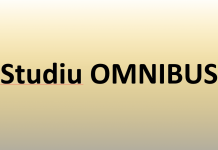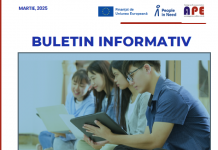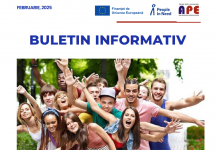The recent government crackdown in Moldova on violent protests against allegations of electoral fraud during the April 5 parliamentary vote brings to mind Eric Weiner’s "The Geography of Bliss." The author’s year-long search for the world’s happiest place led him to the conclusion that Moldovans must be the most unhappy people. Without an "abiding faith or culture on which to rely," Mr. Weiner wrote, Moldovans harbor a superstitious world-view that is "free-floating, anchored to nothing but the cloud of pessimism that hovers over this sad land."
While a bit over the top, Mr. Weiner’s research revealed important truths which have been consistently observed by scholar and visitor alike: Landlocked between Romania and Ukraine, Moldovans lack a solid sense of identity, pride of nation and hope for the future. That, along with grinding poverty, help explain why as many as one-quarter of all Moldovans live and work abroad, sending back the remittances that keep this country afloat.
It may also explain why Moldovans might be open to the current passport contest for their loyalties among Russia, Romania and to a lesser extent Ukraine. Romanian President Traian Basescu said last week that his country would give Moldovans an individualized fast-track to Romanian — and thus European Union — citizenship. Mr. Basescu’s announcement would extend passport eligibility to the great-grandchildren (up from the grandchildren) of those who were Romanian citizens when Moldova was, until 1940, part of Romania. This extended cohort comprises much of the population of today’s Republic of Moldova. But already in 2007, following Romania’s EU accession, Romanian embassies were inundated with hundreds of thousands of applications for Romanian citizenship from Moldovans. Bucharest has only been able to process a small fraction of these, and it is unclear whether the new rules — which have yet to be implemented — will increase the pace.
At the same time, Russia has promoted its own "passportization" policy in Moldova and Transdniestria — the latter has always been a more Russified region of Moldova. Russian forces have remained in the breakaway region east of the Dniester river supporting the Russian-speaking population who have proclaimed a "Transdniestria" republic. The territory wants to become independent and eventually join Russia, although it contains a roughly equal mix of Russians, Moldovans and Ukrainians. Even those roughly 33% of the Transdniestrian population who are formally classified as "Moldovan" are overwhelmingly oriented toward Russia, its institutions and language. It is unclear how many Russian passports have been issued, but anecdotal evidence suggests that the number is in the many thousands. More quietly, Kiev is also looking out for what it considers ethnic Ukrainians in both right-bank Moldova and the Transdniestrian region.
An examination of the territory’s tortured history helps explain the origins of this Moldovan identity confusion. The glory days of Stefan the Great’s successful resistance against the Ottomans in the 15th century comprise the nation’s lore and symbolism. The last five hundred years, however, have been tough on Moldovan pride. From roughly 1503, the area was a tribute-paying Ottoman vassal until it came under Russian overlordship in 1812. A few months of independence after the chaos of the Russian Revolution led in 1918 to a "voluntary" union with Romania, which treated its cousins less than chivalrously. This union lasted until the Molotov-Ribbentrop pact sliced back the area to the USSR in 1940. After changing hands during World War II, the territory of today’s Republic of Moldova — with Stalin grafting on the traditionally Russian area of Transdniestria on the left bank of the Dniester river and stripping off to Ukraine the valuable but Romanian-speaking North Bukovina and Budjak in the south — was swallowed as a Soviet Republic until independence in 1991.
Moldovan identity issues reach deeper than just into geography and citizenship but into their language and thus consciousness. During Soviet times, Romanian — the native language of some two-thirds of Moldovans — was declared to be "Moldovan." Top Soviet propagandists in all seriousness created a Romanian-Moldovan dictionary. The written word was recast in Cyrillic instead of the Latin letters used in neighboring Romania since 1859.
But literature in either Romanian or "Moldovan" was repressed anyway, and the language of government and public discourse was Russian. To this day, the older generation in Moldova speaks beautiful, accent-free Russian, while young people use Romanian and have turned to English as their second language, although the smart ones do recognize the practical importance of keeping up their Russian.
In his eight years as president, Moldovan Communist leader Vladimir Voronin has tacked carefully between Moscow and Brussels, or between the inevitably fond memories of their youth that motivate his aging electoral base and the European aspirations of the new generation. But Mr. Voronin’s moves have often been more treading water than navigation, and these competing generational — and identity — interests found expression in the postelection protests on April 7 and 8.
With many Moldovans potentially "acceding" to the EU as individuals, and lots of Transdniestrians likewise "entering" Russia, what does this mean for Moldova? President Voronin’s government has already passed a law requiring that civil servants can have only Moldovan citizenship, and the Central Election Commission outed 21 parliamentarians elected on April 5 who have dual or even triple citizenship. Under the law, they must renounce these other loyalties before taking their legislative seats. With all these forces still tugging at a relatively new, unconsolidated and poor nation, it seems a proper time and in everyone’s interest to give Moldovan sovereignty a boost. After all, every nation recognizes Moldova’s territorial integrity and sovereignty, but also the right for Transdniestria to have a special status within a unified country. A serious restart of the "5+2" talks on Transdniestria comprising Russia, Ukraine, the Organization for Security and Cooperation in Europe, the EU, the U.S. as well as Moldova and Transdniestria, could lead to a real settlement. Such a deal could open important new areas of trust in a reinvigorated U.S.-EU-Russian relationship and improve the lives of people on both sides of the Dniester.
And as for the "Geography of Bliss": I’ve never seen the Moldovans and Transdniestrians more happy and united as when the Moldovan national football team plays its European rivals at the high-tech "Sherif" stadium, deep within Transdniestrian territory.






